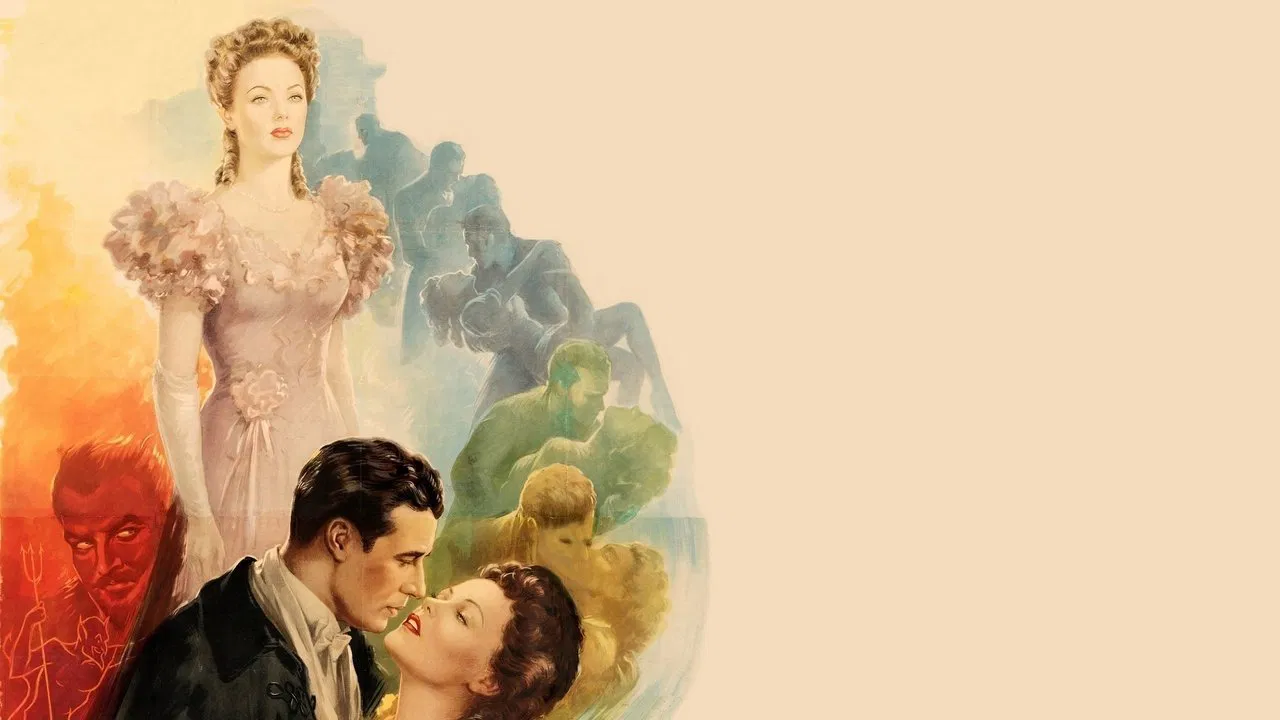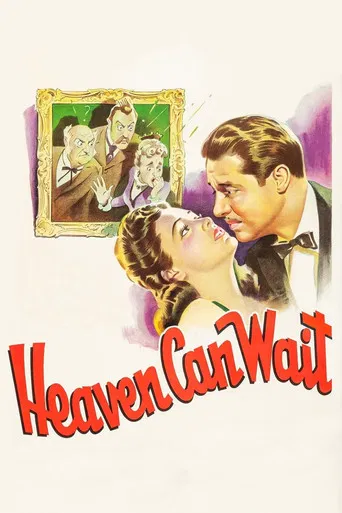

Simple and well acted, it has tension enough to knot the stomach.
... View MoreAll that we are seeing on the screen is happening with real people, real action sequences in the background, forcing the eye to watch as if we were there.
... View MoreThis movie feels like it was made purely to piss off people who want good shows
... View MoreA movie that not only functions as a solid scarefest but a razor-sharp satire.
... View MoreI just thought this movie was rather boring because I felt like the story was a little over the top and that I couldn't just keep up with it. It was like the main characters storyline was telling a good few stories to the devil rather than his own. It just was so silly like I don't know how anyone can follow this movie, its confusing! I have nothing more to say but this movie was a time waster, never would I recommend this as one of the greatest movies of the 40's.................
... View MoreUnder its full-blown Technicolor aureole, HEAVEN CAN WAIT becomes the one and only oddity in Lubitsch's canon, it is also a three-time Oscar nominee including BEST PICTURE and BEST DIRECTOR, adapted from Leslie Bush-Fekete's stage play BIRTHDAY. Indeed, this dissection of a boulevardier's seventy-year life orbit is demarcated through his birthdays. Arriving at the entrance of Hell (grandiloquently designed futuristic tableau), the freshly-departed Henry Van Cleve (Ameche) meets the Hades the Excellency (Cregar), and takes for granted that he would go to hell, but His Excellency suggests Henry to chronicle his entire life to him, so that he can make the judgement whether Henry is qualified or otherwise. Before that, a flashy but over- the-hill old acquaintance of Henry, Ms. Edna Craig (un uncredited Bates), has be squarely sent to the infernal by the eyeball-rolling Excellency, after all, it is difficult to bypass the annoyance that the picture has been inexorably sullied by the double gender standard of its time. Anyway, that is only a sidebar note. Henry is born with a silver spoon in his mouth, the only child of Randolph (Calhern) and Bertha (Byington), his parents are stuffy and prissy, but Henry takes after his grandfather Hugo Van Cleve (Coburn), a self-made millionaire. From his prepubescent years, he has already acquired a natural knack of wooing girls, garnished with a little influence from a snazzy French maid (Hasso, a resplendent accompaniment), a rake is officially born. It is at his 26-year-old birthday party, a chance-meeting of the girl of his dream, Martha Strable (Tierney), the fiancée of Henry's pedantic cousin Albert (Joslyn), Henry wastes no time to propose an elopement together which sweeps Martha off her feet, and unceremoniously scandalizes the rest of the family and on-lookers (maybe not grandpa). Ten years later, everything seems to remain status quo (although Randolph has exited the scene at this point), Henry is 36-year-old, he and Martha have a son Jack, grandpa is still sprightly, and later will assist Henry to win back Martha for a second time at the Strables' in Kansas, where Lubitsch cooks up a splendidly humorous skit between Martha's warring parents (Pallette and Main) with their butler Jasper (Muse) as a brilliant intermediary. The good-natured Martha will take her bow after their 25th wedding anniversary, leaves Henry to the adult Jack (Andrews), who is gallant enough to take over the family business while Henry, as years go by, never grows out of his man-child carapace, not even when he is in extemis, just after celebrating his 70th birthday, all he wants is a sultry nurse to send him down to the road (his exit music is tellingly, Franz Lehar's MERRY WIDOW WALTZ), only to be denied by the over-courtly Excellency, heaven can wait, after all, since one's raffish behavior alone doesn't guarantee to descend into hellhole, it is the aggregate that really counts. Coyly leaving all of Henry's dalliances off-screen, Lubitsch's touch only focuses on his more meritorious facets such as his well-maintained marriage with Martha, and his cautious move to sever off the possible relationship between a money-seeking showgirl and Jack. Don Ameche's sublimely debonair affinity perfectly accentuates Henry's salutary charm, which merely makes his self-effacing lamenting on his senility and growing pouch sound too mawkish to concur (the make- up department is not really helping either). Gene Tierney, first-billed for her star power rather than her screen time, is four-square enough to exemplify the image of an immaculate wife with Charles Coburn naughtily playing harmless tricks and being sagacious in the side lane. Still, HEAVEN CAN WAIT, in the face of its joie-de-vivre grandstanding, deep down, there is a tangible twinge of loss and sudden departures hits audience harder than it lets on, through the ellipsis of characters when time jumps, ineffably tempers the life-affirming tale with a knowing poignancy, gladly so, maestro Lubitsch never disappoints us.
... View MoreHeaven Can Wait is a very bad movie that can be summarized as follows:Strengths: Excellent production values; lavish, over-the-top decor and costumes; glorious technicolor photography; scene of Eugene Palette and Marjorie Main at tableWeaknesses: Characterless, watery, stone-age, middlebrow humor; lame, stilted dialogue; very stereotyped and completely shallow family dynamics driving all of the action; some *Really* bad acting (especially the teenaged versions of the male characters and the voice of the stupendously irritating "mademoiselle" character)The first half hour and the last 15 minutes were especially painful and I was very tempted to walk out but, somehow, suffered through the whole thing. I regretted going to see this movie and would not wish the experience of seeing it on my worst enemy.
... View MoreAn old roué arrives in Hades to review his life with Satan, who will rule on his eligibility to enter the Underworld.This film had my attention from the very beginning. Starting out in the underworld, and the devil himself has to decide whether or not to take a man? Great concept, with plenty of potential humor. The film ends up being much less about humor and more about romance, but this does not take away from the initial concept.A 1978 film, also called "Heaven Can Wait", is a remake of an entirely different film, the 1941 "Here Comes Mr. Jordan", which was based on a 1938 stage play originally titled "Heaven Can Wait". I am glad to know this now, because I had assumed it was a remake... now I will be less inclined to pick up a copy.
... View More